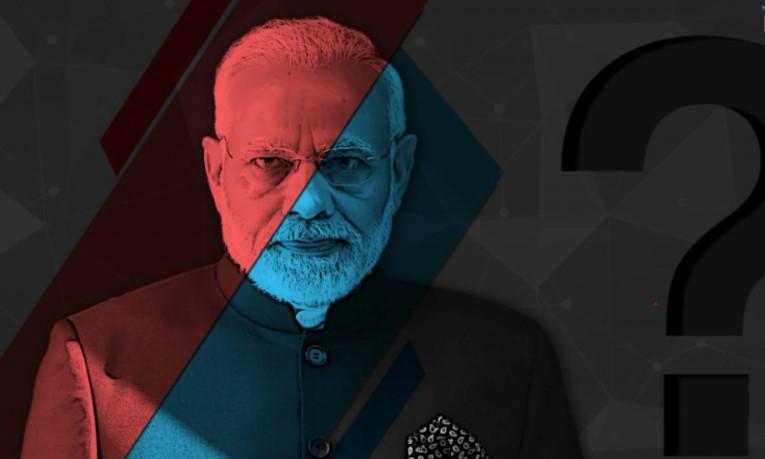
85% Indians favour autocratic or military rule, decline faith in democracy: Survey
text_fieldsA staggering 85 per cent of Indians surveyed express a preference for autocratic or military rule, while also indicating a lack of faith in representative democracy, according to a survey conducted by the United States-based think tank Pew Research Centre.
According to the report titled 'Representative democracy remains a Popular Ideal, but People Around the World Are Critical of How It’s Working,' India leads among the 24 countries surveyed in endorsing autocratic forms of governance, a trend that gained acceptance during the Narendra Modi government.
The survey, based on the centre's spring 2023 Global Attitudes Survey, captured the sentiments of 2,611 Indian adults between March 25 and May 11, 2023. Notably, regions such as Andaman and Nicobar Islands, Lakshadweep, and the North East were excluded from the study. The findings underscore a significant decline in faith in representative democracy, with 67% of respondents expressing support for autocracy—a sharp 12% increase since 2017.
Furthermore, the report highlights a staggering 82% backing for technocracy in India, where experts, rather than elected officials, make pivotal decisions for the nation—an endorsement unmatched by any other country surveyed. This sentiment reflects a notable 17% rise since 2017, indicating a shifting preference towards governance by specialized knowledge.
Interestingly, despite the overwhelming support for autocracy and technocracy, 72% of Indian respondents expressed satisfaction with the functioning of democracy in the country—a figure that has seen a gradual decline from 79% in 2017. This paradoxical stance suggests a complex relationship between public opinion and political realities in India.
The survey also sheds light on perceptions of political representation, with 54% of respondents believing that elected representatives do not truly understand or care about their concerns. However, a majority—58%—felt represented by at least one political party in the country, indicating a nuanced view of the political landscape.
Prime Minister Narendra Modi continues to enjoy widespread popularity, with a remarkable 79% of Indians holding a favourable view of his leadership. Conversely, Rahul Gandhi, a prominent figure in the opposition Congress party, garnered favourable ratings from 62% of respondents, highlighting a significant polarization in political preferences.
Notably, while India stands out for its overwhelming support for autocracy and technocracy, global trends paint a different picture. Countries across North America, Europe, Australia, Israel, and South Korea overwhelmingly reject military rule, with eight in ten or more respondents denouncing it as a "bad" system. This stark contrast underscores the diverse perspectives on governance across the globe.
The report further observes a correlation between a nation's GDP per capita and public support for autocratic rule, indicating that higher-income democracies tend to have fewer proponents of strongman leadership. However, it also acknowledges that even in wealthier democracies, a significant portion of the population sees rule by a strong leader as favourable, demonstrating the complex interplay between economic factors and political ideology.
As India grapples with shifting attitudes towards governance and democracy, these findings serve as a crucial barometer of public sentiment, offering insights into the evolving dynamics of political discourse in the world's largest democracy.
The Pew Research Centre's report offers a compelling insight into the evolving political landscape of India, wherein traditional democratic ideals appear to be giving way to a growing appetite for alternative governance models. As the nation grapples with shifting political preferences, the implications for its democratic institutions remain uncertain, signalling a potential inflexion point in India's political trajectory.























